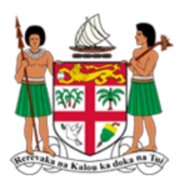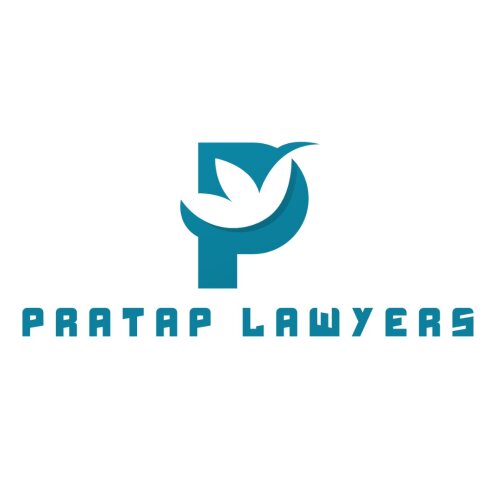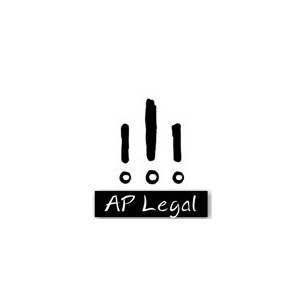Best Mining Law Lawyers in Fiji
Share your needs with us, get contacted by law firms.
Free. Takes 2 min.
Or refine your search by selecting a city:
List of the best lawyers in Fiji
About Mining Law in Fiji
Mining Law in Fiji governs the exploration, extraction, processing, and sale of mineral resources within the country’s boundaries and territorial waters. The sector is primarily regulated by the Mining Act of 1965, subsequent amendments, and associated regulations. These laws outline the rights of the state, landowners, and mining operators, and reflect Fiji’s commitment to sustainable development, environmental protection, and respect for landowner rights.
Why You May Need a Lawyer
A lawyer with expertise in Mining Law can be crucial in several situations, including:
- Negotiating or reviewing mining leases and agreements
- Ensuring compliance with environmental and safety regulations
- Advising landowners on their rights when mining is proposed on their land
- Assisting companies with the process of applying for mining licenses and permits
- Representing parties in disputes between miners, landowners, or the government
- Interpreting complex regulatory requirements and obligations
- Guiding foreign investors through the local legal and regulatory framework
- Addressing compensation and benefit-sharing matters
- Dealing with rehabilitation and closure of mining sites
Having the right legal support helps ensure all parties understand their rights and responsibilities and that projects proceed smoothly and lawfully.
Local Laws Overview
The key legislation governing mining in Fiji is the Mining Act of 1965. Other critical documents include the Land Use Act, the Environment Management Act 2005, and the iTaukei Land Trust Act. Here are some important aspects:
- Ownership of Minerals: All minerals are the property of the State, regardless of who owns the land where they are found.
- Licensing and Permits: Prospective miners must obtain licenses for exploration and mining from the Director of Mines. The process requires environmental assessments and consultations with landowners and statutory bodies.
- Landowner Consultation and Compensation: Mining on iTaukei (indigenous Fijian) land or freehold land demands negotiations and agreements with landowners, often involving compensation and benefit sharing.
- Environmental Safeguards: Laws require environmental impact assessments (EIAs) for new mining activities. Mining companies must comply with environmental standards to minimize negative impacts and plan for land rehabilitation.
- Regulatory Bodies: The Mineral Resources Department oversees regulatory compliance, while iTaukei Land Trust Board manages iTaukei lands used for mining.
Frequently Asked Questions
What is the process of obtaining a mining license in Fiji?
Applicants must submit a formal application to the Mineral Resources Department, including details about the area, minerals, work program, and environmental plans. The process involves environmental and landowner consultations, and, if approved, a license is issued with certain conditions.
Can foreign companies own mining rights in Fiji?
Yes, foreign companies can apply for mining rights, but they must register a local entity and comply with Fiji’s regulations, including environmental and landowner requirements.
Are landowners entitled to compensation?
Yes, landowners are entitled to compensation for disturbance and loss of use of their land. This is typically negotiated as part of the lease or mining agreement.
Who owns the minerals found on private or customary land?
All minerals are owned by the State, irrespective of land tenure. Landowners have rights to compensation but not ownership of minerals.
What environmental controls exist for mining operations?
Mining operators must conduct Environmental Impact Assessments and obtain an Environment Permit before commencing operations. There are also requirements for ongoing monitoring and rehabilitation of mine sites.
What types of mining licenses are available in Fiji?
Common licenses include Prospecting Licenses, Mining Leases, and Special Prospecting Licenses. Each has different terms, conditions, and lengths, depending on the scale and purpose of the activity.
What is the role of the iTaukei Land Trust Board in mining?
The iTaukei Land Trust Board manages the interests of indigenous landowners and is involved in lease negotiations, ensuring that the interests of iTaukei landowners are protected.
What happens if there is a dispute between a mining company and landowners?
Disputes are often resolved through negotiation and mediation. If unresolved, parties can seek intervention from relevant regulatory bodies or the courts.
Are there restrictions on exporting minerals from Fiji?
Yes, exporting minerals requires permits from the Ministry of Lands and Mineral Resources. Some restrictions may apply depending on the type of mineral and international agreements.
What obligations do mining operators have regarding site closure?
Operators are required to rehabilitate mining sites after operations cease. This includes restoring land stability, revegetation, and ensuring the area is safe and free of contamination.
Additional Resources
The following organizations and governmental bodies can provide further information or assistance:
- Mineral Resources Department
- iTaukei Land Trust Board
- Ministry of Lands and Mineral Resources
- Department of Environment
- Fiji Environmental Law Association
- Fiji Law Society
- Fiji Human Rights and Anti-Discrimination Commission (for social and indigenous rights concerns)
Next Steps
If you require legal assistance in Mining Law in Fiji:
- Identify your specific issue, such as licensing, landowner negotiations, compliance, or dispute resolution.
- Gather relevant documents and information, such as land titles, agreements, and correspondence.
- Contact a lawyer with experience in Mining Law and familiarity with Fiji’s legal and regulatory environment.
- Prepare your questions in advance and be ready to explain your situation in detail.
- Consult relevant authorities or organizations, especially if your concerns involve regulatory processes, land rights, or environmental issues.
- Ask your lawyer to explain your options clearly and help you chart a path forward, whether through negotiation, regulatory filings, or formal legal proceedings.
Engaging with a qualified legal professional early in the process can help you navigate the complexities of Mining Law in Fiji and protect your interests effectively.
Lawzana helps you find the best lawyers and law firms in Fiji through a curated and pre-screened list of qualified legal professionals. Our platform offers rankings and detailed profiles of attorneys and law firms, allowing you to compare based on practice areas, including Mining Law, experience, and client feedback.
Each profile includes a description of the firm's areas of practice, client reviews, team members and partners, year of establishment, spoken languages, office locations, contact information, social media presence, and any published articles or resources. Most firms on our platform speak English and are experienced in both local and international legal matters.
Get a quote from top-rated law firms in Fiji — quickly, securely, and without unnecessary hassle.
Disclaimer:
The information provided on this page is for general informational purposes only and does not constitute legal advice. While we strive to ensure the accuracy and relevance of the content, legal information may change over time, and interpretations of the law can vary. You should always consult with a qualified legal professional for advice specific to your situation.
We disclaim all liability for actions taken or not taken based on the content of this page. If you believe any information is incorrect or outdated, please contact us, and we will review and update it where appropriate.
Browse mining law law firms by city in Fiji
Refine your search by selecting a city.

















